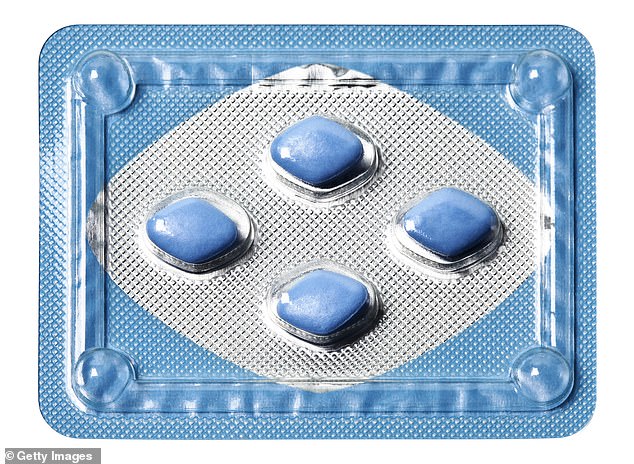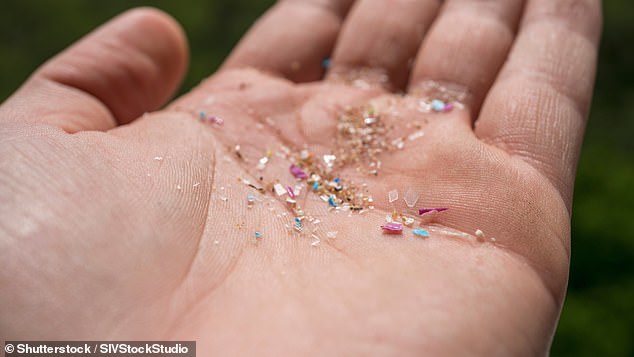Microplastics used in food packaging could reach the penis and cause sexual problems, experts have warned.
The discovery was made by researchers who examined penile tissue from men undergoing erectile dysfunction surgery and found small particles in eight out of ten samples.
They called the discovery “concerning” and said microplastics could affect penile muscle function.
Microplastics are plastic fragments as small as two micrometers or two thousandths of a millimeter.
These particles find their way into food, water supplies, and even the air when plastic products degrade naturally.
Particles, as small as two micrometers or two thousandths of a millimeter, have long been detected in the air, water and food around us. But American scientists, who evaluated tissue from men who had undergone erectile dysfunction surgery, found seven different types in 80 percent of the samples taken.
Recent studies have identified microplastics in human lung tissue, in maternal and fetal placental tissues, in human breast milk and in human blood.
A growing body of research has already linked them to the development of cancer, heart disease and dementia, and even lower quality sperm.
Dr. Ranjith Ramasamy, co-author of the latest study and former director of reproductive urology at the University of Miami, said, “The penis is a vascular, spongy organ, so it’s definitely vulnerable.”
‘During an erection, one fifth of the entire body’s blood volume is pumped to the penis.
He added: “We know that erectile dysfunction is multifactorial. You need good hormones, nerves, blood supply and good smooth muscle tissue for an erection to occur.
«We discovered that there were microplastics in the smooth muscle of the penis.
“All we know is that they shouldn’t be there and we suspect that they could cause smooth muscle dysfunction.”
He added: “As a society, we must be aware that drinking water from plastic bottles, getting takeaway food in plastic containers and, worse still, microwaving food in plastic containers, are contributing to having things in our bodies. that they shouldn’t be there.
“And the penis is the only organ that everyone will pay attention to.”
The researchers, who analyzed tissue from five men, found that almost half (47.8 percent) of the microplastics were polyethylene terephthalate, commonly used to make clothing and food and beverage containers.
Polypropylene, a harder microplastic also used in packaging, made up more than a third (34.7 percent) of the substances.
Some measured up to half a millimeter.

Erectile dysfunction affects 4.3 million men in the UK, including half of all men aged 40 to 70. One in 10 will experience erectile dysfunction at some point in their lives. Medications such as Viagra (pictured) are used to control erectile dysfunction in at least two-thirds of cases, according to the NHS.
Writing in the diary, IJIR: Your sexual medicine diaryThe scientists said: ‘Our study presents groundbreaking research into the presence of microplastics in penile tissue.
“Detection of microplastics in penile tissue raises questions about the ramifications of environmental contaminants on sexual health.”
Erectile dysfunction affects 4.3 million men in the UK, including half of all men aged 40 to 70.
One in 10 will experience erectile dysfunction at some point in their lives.
According to the NHS, drugs such as Viagra are used to control erectile dysfunction in at least two-thirds of cases.
Erectile dysfunction often acts as a marker of a man’s overall health.
According to experts, the inability to achieve or maintain an erection could be the result of undiagnosed high cholesterol or blood pressure or even a warning sign of cardiovascular disease.
This is because the blood vessels need to dilate for blood to flow to the penis and allow the man to have an erection.
But cardiovascular disease can narrow the arteries, meaning less blood can flow, making it difficult to get or maintain an erection.


